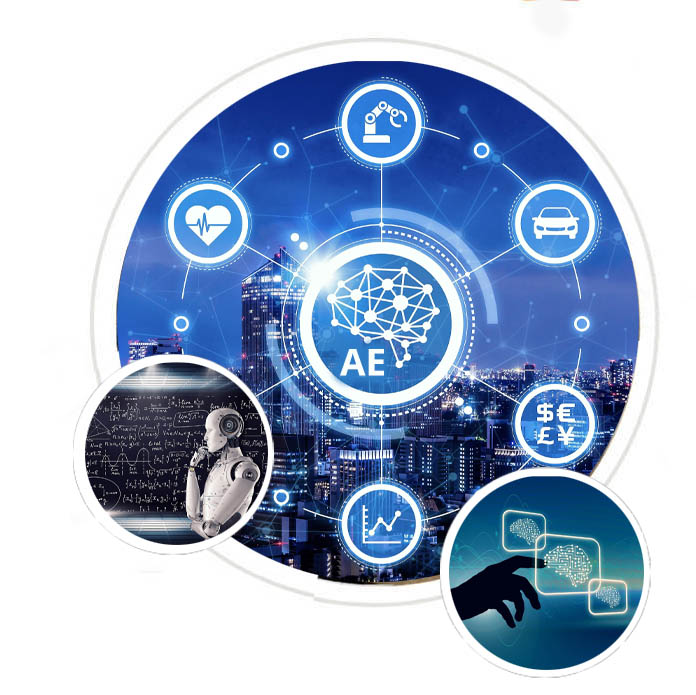The new normal has quickly taken hold during these unprecedented times, and businesses have taken bigger steps toward becoming autonomous enterprises. These companies recognize the need to drive resilience along with efficiency. Leveraging artificial intelligence (AI), machine learning (ML), and automation is not only becoming an essential component to the success of large-scale corporations’ operations, but it is also helping reshape roles within the IT industry. By adopting these technologies, you can create a more intelligent, agile, and responsive business model.
With the rapid maturation of increasingly sophisticated technologies, enterprises now have an opportunity to bring new levels of context, intelligence, and automation to day-to-day processes and decision-making in a way that spans organizational silos and enables holistic, enterprise-wide change. In short, they can work toward becoming an autonomous enterprise.
Transformation of this sort will require a deep understanding not only of the potential of new technologies but also of how existing information systems connect and interact and where current business processes have room to improve. This is where Tangentia comes in as an expert with those deep insights, to determine where the opportunity lies and where existing IT infrastructure might be holding your organization back from realizing its full potential.
Autonomous Enterprise is here!
- By 2023, organizations will be able to run a full 25% more tasks autonomously
- By 2024, organizations will lower operational costs by 30% by combining hyperautomation technologies with redesigned operational processes.
- By 2025, more than 20% of all products will be manufactured, packed, shipped, and delivered without being touched
- By 2023, organizations will be able to run a full 25% more tasks autonomously
- By 2024, organizations will lower operational costs by 30% by combining hyperautomation technologies with redesigned operational processes.
- By 2025, more than 20% of all products will be manufactured, packed, shipped, and delivered without being touched
Why Autonomous Enterprise?
What is the Autonomous Digital Enterprise framework?
If companies are to thrive amid the rapid transformation we continue to experience, they must reorient the relationships between society, government, and the way we do business. The ability to adapt to these changes, increase investment in digital transformation, and evolve to new business models will enable companies to better prepare for a future of growth.
The Autonomous Digital Enterprise is the framework for the successful future enterprise. It’s a digital-first business with distinct tech tenets and operating model characteristics that support transformation through actionable insights, business agility, and customer centricity.
Tech tenets
Leveraging and optimizing technology is key to Autonomous Digital Enterprise evolution. We’ve identified five technology tenets where an Autonomous Digital Enterprise should dedicate its efforts and investments by developing skills and curating solutions and tools for maximum impact. Coupled with the operating models listed below, these technology tenets represent the focus for successful outcomes of an Autonomous Digital Enterprise.
Transcendent customer experience
Deliver an omnichannel, multimodal, cloud-first experience powered by AI that:
- Gives customers and employees what they need by making technology feel more human
- Enables rich do-it-yourself experiences backed by human expertise
- Recognizes any device as a channel for interaction
- Leverages analytics and orchestration for a frictionless experience
Automation everywhere

Embrace new and emerging technologies and harness explosive data growth to drive highly automated business processes that are orchestrated, controlled, and executed by software. In an Autonomous Digital Enterprise, automation is a complementary business function that augments human effort. By exploiting automation across the datacenter and to the edge, organizations can:
- Execute with efficiency and scale
- Free up employees from mundane tasks
- Lower costs while improving customer interaction
Enterprise devops
Adopt and develop DevOps processes, tools, skills, teams, and leadership across software initiatives and existing portfolios to:
- Drive business agility, enable innovation, and delight customers
- Optimize for rapid continuous delivery of applications and services
- Embrace cultural and behavioral change to create a frictionless environment for success
- Propel security initiatives (DevSecOps) and data pipeline automation (DataOps)
Data-driven business
Create value from and monetize assets by making data central to the business, prioritizing robust analytics capabilities, and supporting a systematic approach to data strategy, architecture, operations, and execution. A data-centric mindset will allow businesses to:
- Extract enterprise-wide data, including IoT, social media, and customer engagement systems
- Employ artificial intelligence (AI) and machine learning (ML) to optimize, improve, guide, and execute actions
- Monetize data assets with high-value business use cases
Adaptive cybersecurity
Manage the growing risk landscape that has far exceeded the capacity for manual human intervention by automatically and programmatically mitigating new and evolving threats across the digital landscape:
- Extract enterprise-wide data, including IoT, social media, and customer engagement systems
- Employ artificial intelligence (AI) and machine learning (ML) to optimize, improve, guide, and execute actions
- Monetize data assets with high-value business use cases
Competitive Differentiators
An Autonomous Digital Enterprise is growth-oriented, replacing manual and redundant tasks with automated intelligence and freeing up people to be creative, serve customers, and collaborate on higher-level pursuits. The successful ADE is defined by these three criteria and outcomes










